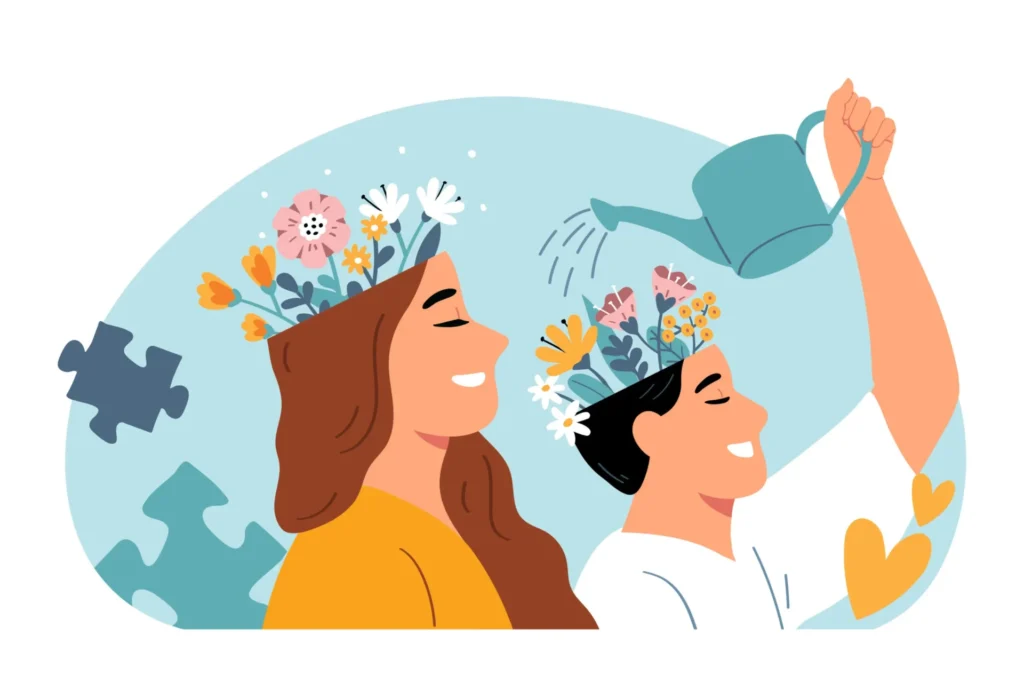The Power of Community Healing
Have you ever wondered why some communities seem to recover faster from challenges than others? Whether it’s a natural disaster, a public health crisis, or a shared emotional trauma, the role of community in healing is often overlooked. While personal therapy and self-help techniques are crucial, the power of collective healing through a community is immense and often underappreciated. Communities that come together to share experiences, provide support, and foster connection often see quicker and more sustainable healing for their members. But what makes community healing so effective, and why does it work better for some than others?

The Hidden Benefits of Community Healing
In Ontario, where we value our sense of belonging and collective well-being, community healing can be transformative. Research has shown that social support plays a significant role in mental health outcomes. For instance, a study by the Mental Health Commission of Canada found that individuals who actively participated in community support programs reported higher levels of well-being and resilience than those who did not. However, it’s not just about gathering together—it’s about the depth of connection and understanding shared between people.
Community healing offers emotional, psychological, and even physical benefits that are often overlooked. While most people associate healing with professional therapy or medical treatments, a supportive community can significantly improve mental health. Individuals dealing with trauma, grief, or stress can benefit from the shared experiences of others. Research has shown that people who feel they belong to a supportive group are more likely to experience lower stress levels, reduced anxiety, and an increased sense of purpose. Ontario’s emphasis on multiculturalism provides a unique opportunity for communities to draw on diverse cultural practices in healing—whether through art, meditation, or group discussions.
Building Emotional Resilience Together
One of the key elements of community healing is emotional resilience. The truth is, it’s easier to cope with difficult emotions when you’re not doing it alone. This is because our brains are wired for connection. According to a study published by the American Psychological Association, collective emotional experiences, such as grief or joy shared within a group, help release dopamine and oxytocin—neurochemicals responsible for creating feelings of happiness and trust.
Think about group therapy sessions or community support groups—they often succeed because of the shared emotional understanding among participants. These settings foster a non-judgmental environment where individuals can express themselves freely and feel validated by others who have similar experiences. For Ontario residents, community healing initiatives could be particularly powerful, especially in rural areas where access to mental health services might be limited.
Moreover, group-based support has been found to reduce feelings of isolation, a growing issue in today’s digitally-driven world. Studies show that people who engage in community-driven healing have better outcomes in treating depression and anxiety compared to those who undergo individual therapy alone. In the wake of the COVID-19 pandemic, Ontarians have seen firsthand how important community solidarity is in times of crisis, reinforcing the need for these supportive environments.
Learn more about “How to Prepare for Marriage Counseling” on our blog page today!
Unique Aspects of Community Healing in Ontario
While the concept of community healing is universal, there are aspects unique to Ontario that shape how it works. The diversity of Ontario’s population allows residents to experience healing practices from various cultural traditions. For example, Indigenous communities in Ontario have long practiced community healing through group ceremonies, storytelling, and nature-based rituals. These approaches are grounded in a deep understanding of interconnectedness and the belief that healing is a collective, not just individual, process.
Community centers across Ontario also play a huge role in facilitating healing. Programs like group art therapy, mindfulness workshops, and peer-led support groups bring people together in safe spaces to talk about their experiences and learn from each other. Additionally, some communities are beginning to recognize the importance of intergenerational healing, where both elders and youth come together to share knowledge, experiences, and solutions to overcome shared challenges.

Cedarway Therapy: Supporting Healing in Ontario
At Cedarway Therapy, we understand the profound impact that community healing can have on individuals. While our clinic offers professional mental health services such as Psychoeducational Assessment Ontario, we also value the role of communal support in healing. Psychoeducational Assessment Ontario, for example, helps individuals understand their learning needs and cognitive strengths, which is crucial for personal development and mental well-being. However, when combined with community healing—whether through school-based programs or peer support groups—these assessments can be even more impactful.
For Ontario residents, Cedarway Therapy offers personalized approaches to mental health that incorporate the best of both worlds: professional assessments and community-based healing. By working together with families, schools, and local organizations, we provide a comprehensive support system that not only addresses individual challenges but also encourages collective growth. If you or your child is in need of a Psychoeducational Assessment Ontario, we’re here to guide you through the process and connect you with resources that can further support your journey towards healing.
Why Community Healing Matters Now More Than Ever
The rise of mental health challenges in recent years has highlighted the importance of collective healing efforts. As more people face stress, anxiety, and burnout, the need for community-based healing solutions has become urgent. In Ontario, where long waiting lists for mental health services are a reality, community healing can serve as a bridge to professional support. While you’re waiting for an appointment or navigating the complexities of the healthcare system, your community can offer immediate relief through mutual understanding and shared experiences.
Additionally, recent statistics from the Ontario Mental Health Association show that over 30% of Ontarians will experience mental health challenges at some point in their lives. However, studies also indicate that communities with strong support networks can mitigate these challenges, leading to quicker recovery and improved quality of life.
How You Can Get Involved in Community Healing
If you’re looking to experience the benefits of community healing, start by getting involved in local groups. Whether it’s a support group for new parents, a peer-led mental health initiative, or even a community gardening club, engaging with others can bring tremendous benefits to your emotional and mental health. Volunteering is another way to contribute to community healing—by helping others, you’ll also be helping yourself.
In Ontario, there are numerous community-driven programs that focus on mental health and wellness. Many cities and towns have mental health hubs where people can access peer support, group therapy, and other community-based healing activities. These initiatives create spaces where everyone is welcome, no matter their background or mental health journey.
Conclusion: The Power of Coming Together
Healing is not something we have to do alone. In fact, when we come together, we heal faster, better, and more completely. Community healing offers a pathway to resilience, emotional growth, and sustained mental wellness—something that’s particularly important for Ontario residents. With the right support, both from professionals like those at Cedarway Therapy and from our communities, we can navigate life’s challenges with greater strength.
Are you ready to tap into the power of community healing? Cedarway Therapy is here to help you navigate your mental health journey with psychoeducational assessments and community support tailored to Ontario residents. Contact us today to learn more about how we can help you thrive emotionally, mentally, and academically. Start your journey toward healing with Cedarway Therapy—because together, we heal stronger. Visit our website or call us today to schedule a consultation and take the first step in your healing process.



